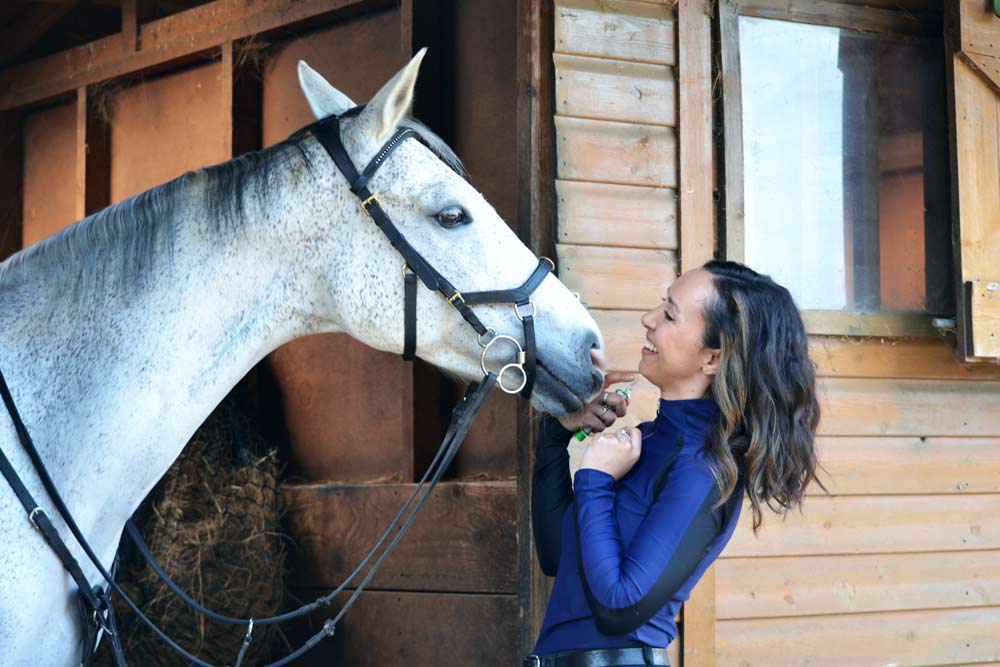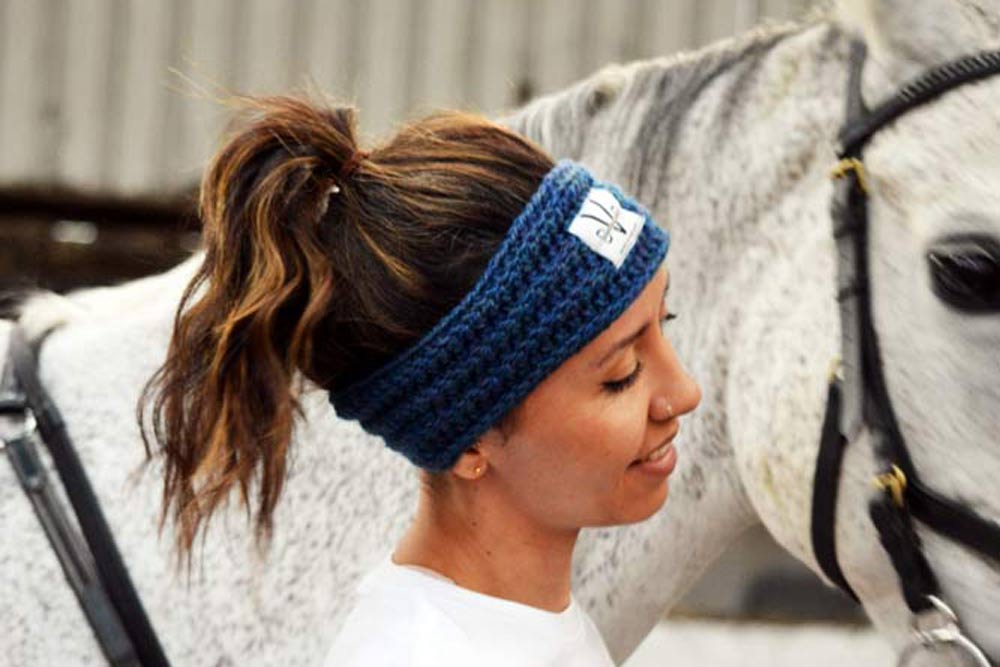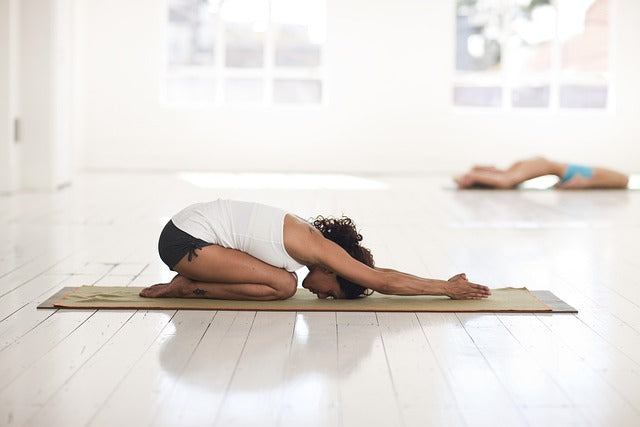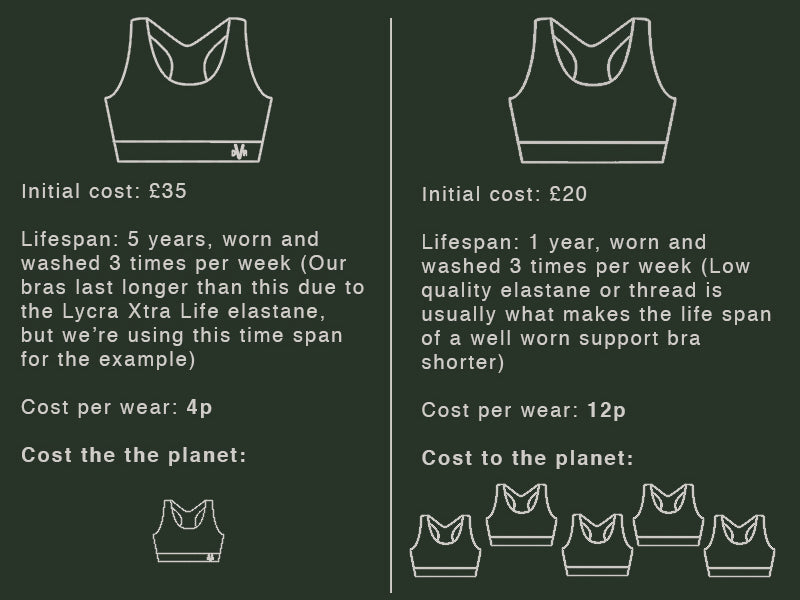CONFIDENCE IN HACKING OUT ON YOUR HORSE
.
An important one for many. Hacking (especially alone) can be very daunting for some. We all stick to our favourite routes where we feel safest and there’s nothing wrong with this, as long as you’re not avoiding certain routes you’d actually like to be riding.
.
Hacking nerves come in a range of forms. Some are nervous of hacking alone, some in company, some are nervous of gates, some of huge open spaces, some the fear of the unknown... What challenges may you be faced with today? From a stray plastic bag, rolling bin or road works to cows, farming machinery, quad bikes, kites, umbrellas, runners, or cyclists, the list is endless and different for every rider.
.
In this post we'll cover some of the most frequent issues riders come across and different ways to think about dealing them. This is the crucial component to beating nerves. Everyone perceives things in different ways. Changing your thinking can be the key to seeing situations as little obstacles rather than the giant problems you may have seen in their place before...
.
Before we begin looking at different areas, DVR model Dede has some great advice for if you find your nerves rising in any area of hacking, she says:
"I find it really helps to concentrate on your breath to make sure your horse is still feeling that you are calm, even if you aren't, and to sing out loud or in your head, it can be a silly song to relax you and make the situation feel less serious, and even if it is a few lines over and over, It does make you feel better. So even if you can't change the situation you are in, you can help distract yourself until you get through it. Or if you are with a friend, try to start talking to them about something completely off subject so that you start thinking about that rather than what's happening and worrying you."
.

.
We'll also cover things you can do to help your horse. How many people show a jump to their horse when they think they might not like it, the whole idea of letting your horse 'get to know' it before you face them at it. So why not do this with scary objects out hacking?
.
In some situations it may not be safe to spend time encouraging your horse to get closer to something they're unsure of, for example, road work. But if it's something in a safe open space that they're shying or huffing and puffing at, try to remain still and quiet (whatever silliness they're doing) and spend some time on it, rather than letting them get past as quickly and widely as they choose every single time. This is how you will change their perception of something. It is incredible what a little encouragement to get closer can do for both you and your horse, spend enough time, and it's unlikely they'll shy at it again.
.
The key to doing this is taking time, not trying to force your horse right up as quickly as possible. If they keep trying to go in the opposite direction, reward them for listening to you by talking to them and stroking their neck, because them staying still when they would prefer to leave in the other direction is them trying for you.
.
Once you feel them relax, then ask them to move a little closer. If they do the opposite, ignore it and focus only on where you want them to go, no rewarding until they're still in the same place again or they've moved forward. But never become aggressive with this or they will only relate this object to negative situations, positivity or ignored behaviour only. And if it's something they're really afraid of, try your best to recognise when they're trying and reward them straight away. For example, if you horse is attempting to turn and pull you in any direction possible to get away, but you keep aiming only for the object, and they end up stopping and looking, even if they feel like they're going to attempt to leave again any minute, reward them for thinking twice about what you're asking even though they're worried.
.
Even if you can't move your hands, talk to them all the time. They will try even harder the more they learn that you appreciate them doing the opposite to what would make them feel more comfortable.
.
Once you get close enough to the object and they have a sniff, let them know just how great they've been and reward them by directing them to now move on with the ride. If the object is just too much, do a little each hack, don't feel you have to accomplish everything then and there. Some things won't work that way.
.
One thing to note is that you should recognise the level of nerves your horse feels towards the object. If they're absolutely terrified, it would be dangerous for you to keep encouraging them to get as close as possible, pushing too much is never the answer. If they're incredibly nervous and rush to pass as wide and quickly as possible each time, simply slowing the passing a little more each ride and aiming to walk slightly closer each time are examples of little goals you can set.
.
This leads us on to our first subject of discussion...
.

.
USING BACKGROUND WORK TO OVERCOME THE FEAR OF UNKNOWN OBJECTS
.
We can use background work to make a difference to our horses reactions out hacking. If you know your horse becomes very afraid when they see an umbrella and this makes you nervous about seeing someone with an umbrella when out hacking, why not bring this object into their daily routine. Start by leaving it in view when you’re grooming, hold one whilst you're poo picking around them, offer them a tasty treat if they show interest, chat to a friend outside your stable whilst casually holding one to show them that you're not afraid of it, and slowly start introducing them to it over time. Encourage them to understand that it is ok.
.
Be creative and allow them to put their trust in you. Just don't try to rush it and get them to overcome a fear straight away. Forcing a scary object upon your horse to try and fix the problem quickly is very unlikely to work. They need to feel that you are totally relaxed and ok with however they react, if they feel that you are at all impatient or demanding, it will only push them further away from accepting the object.
.

RELAXING INTO EXCITABLE BEHAVIOUR
.


If you don’t have access to space like this, or you simply don’t feel confident enough to do so. You could try other things such as schooling some energy out of them before you hack out. Turning out and riding after your horse has been out for a while is another way to achieve a calmer ride, or you could even find someone that doesn’t mind taking your horse out for you on days you can’t, so that they’re being ridden more and become more used to the routine of riding out, this way they won’t find it as exciting as they become more used to it.
.
OVERCOMING THE FEAR OF OPEN SPACES
.
.
The worry of a horse unexpectedly bolting or slowly getting faster and faster in an open space is something many riders suffer with. I have been bolted with, but only a couple of times and on an ex-racer which I'm sure feels very different to the same situation on a heavy-weight type and so my advice in this area is limited, and if you have a regularly occurring issue with bolting I recommend getting advice or help from a local professional, but here are a few tricks I have learned along the way for helping you feel safer about going up a gear in open spaces.
.
Choose more secure places to build up your confidence in going faster. Areas that are shorter for controlled canters where you will be more confident because you know you can see your end point. You can always ask a friend to go behind them too as you get used to going faster in a new space, having a horse in front of you that you can concentrate on keeping behind can help you feel more secure.
.
If you get nervous about going faster in open spaces. Finding a bush line or fence to ride alongside can be really helpful to make you feel more secure. Cantering up hill is also a great way to feel more confident as your horse will tire quicker.
.
Avoid cantering next to another horse to discourage racing until you have built up your confidence, and in my opinion the most helpful lesson to give yourself is learning how you would control a situation like bolting if it did happen. The advantage of riding in big open spaces is that you have plenty of space to gain control back if you do loose it. If your horse does bolt and is too strong to pull up. Turning is a great option. Starting to pull them round with one rein will bring them in to start a big circle. Keeping this turn going until they start slowing up helps you gain control back. You could practise stopping in this way to help lift your confidence in how you would take control if things did go wrong.
.
NEW PLACES
.

.
DVR ambassador Max says, "Reach out of your comfort zone often. Don’t let yourself get too confident with your everyday routine. Giving yourself an aim, something to push yourself past each time will keep you having to challenge yourself and remind you how to overcome your barriers and build your confidence in all different areas."
.
Venturing out on a new ride is always out of your comfort zone. Even with your most trusted steed, you don't know what you're going to find and it's not your normal routine. It's also lovely to find new rides, experience new places and see new views. Going to new places can also be exciting and give you a great sense of achievement when you return home, especially on your own.
.
If you want to experience new rides but become too nervous, a great way to overcome this is to do a little extra each time. Add a new loop onto your ride, one extra field at a time. Add a new part on and stick with this for a while until it feels like one of your comfort zone rides. When you are at this point in your mind, add a little more.
.
Another option is to pair up. Ride out with someone else that wants to do more explorative rides, or if you're worried about getting lost, then with someone that goes out further already.
.

.
DVR ambassador Laura says, "Use your friends around you to help give you that confidence and distraction. Riding with friends makes you feel safer, and your friends can help by getting you into a conversation to distract you from worrying about what the horse is doing."











Leave a comment